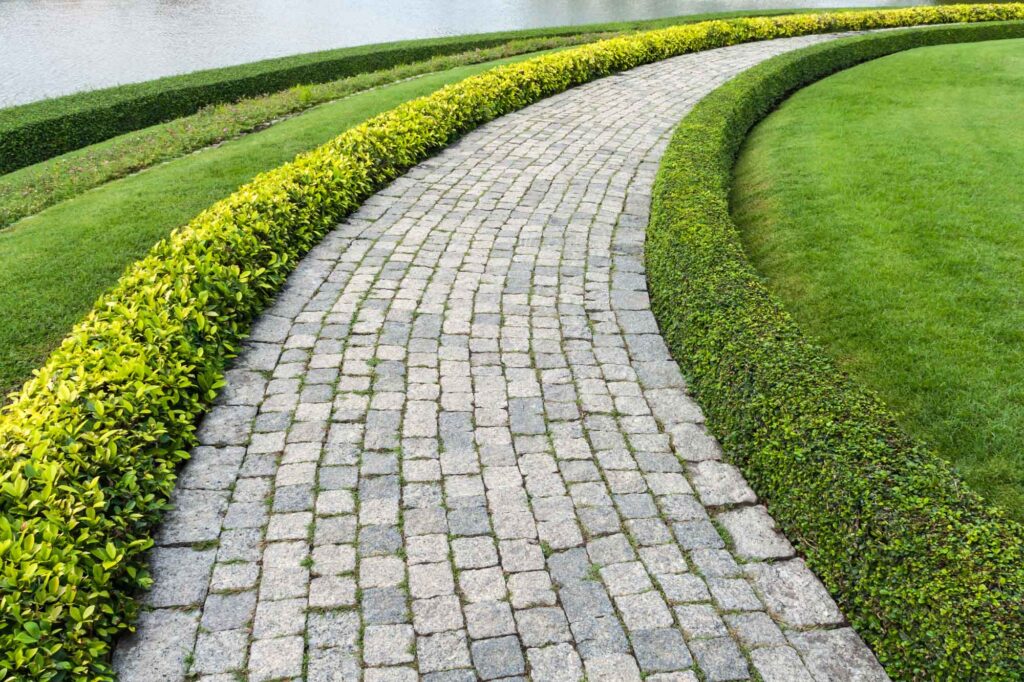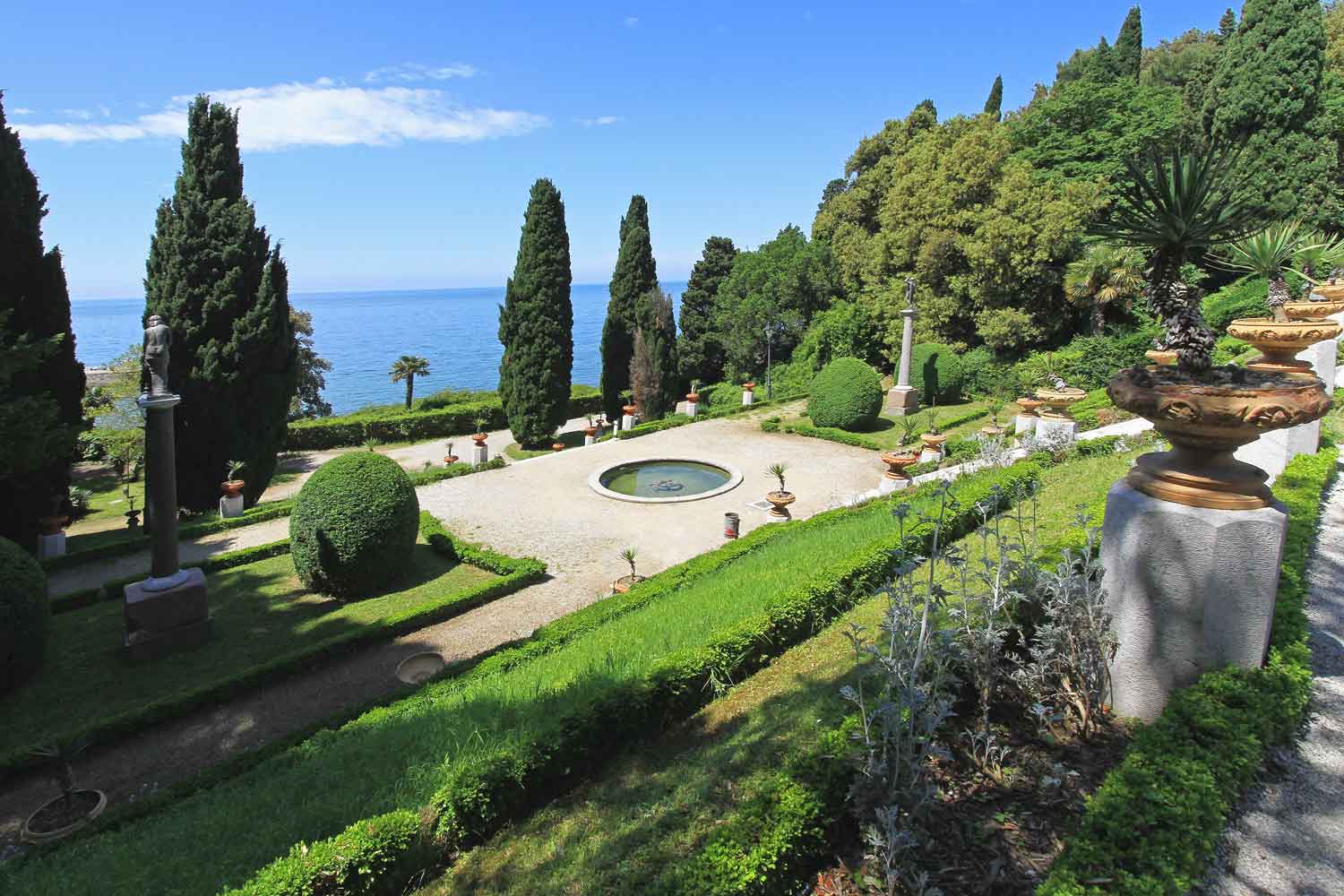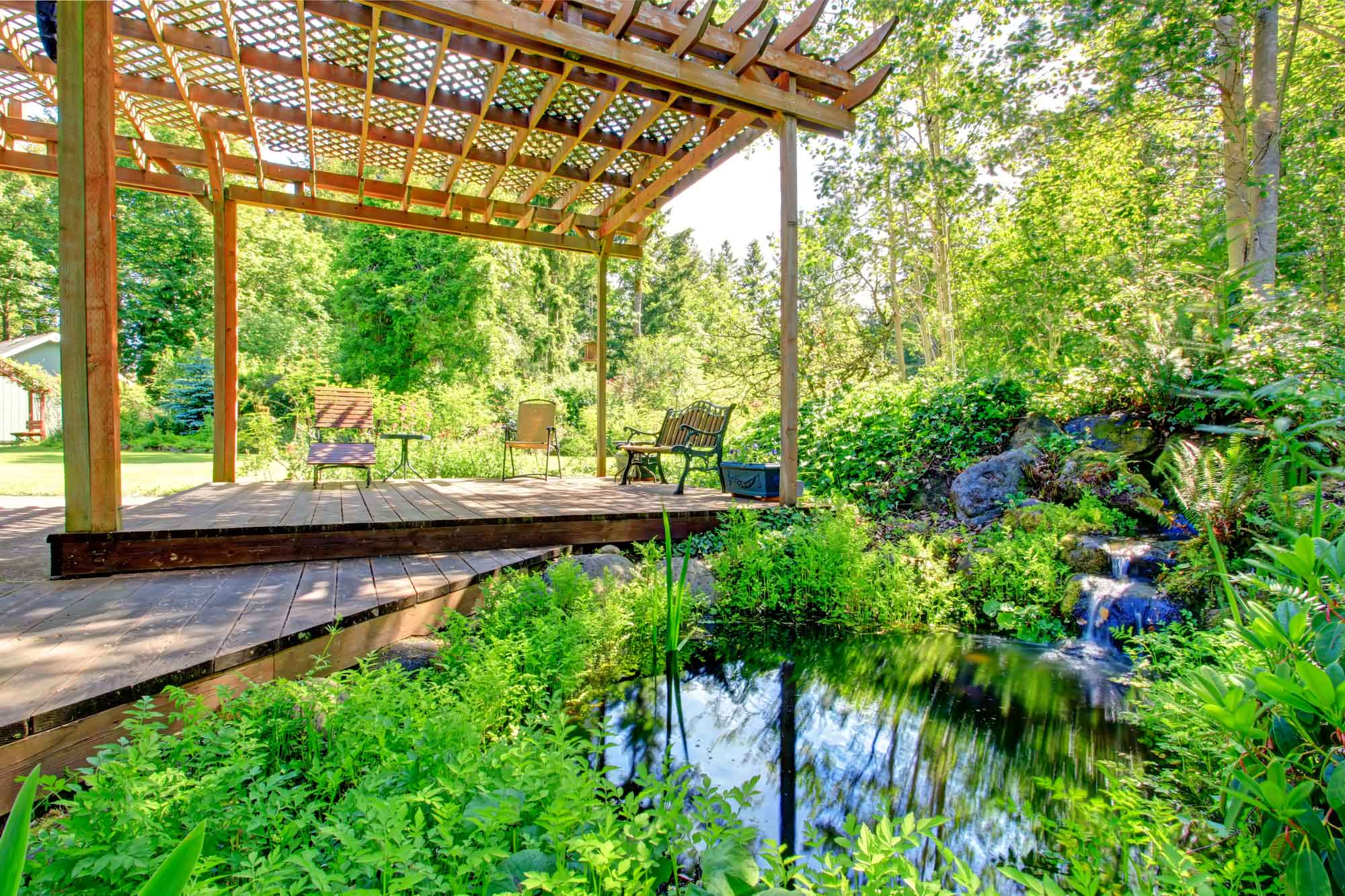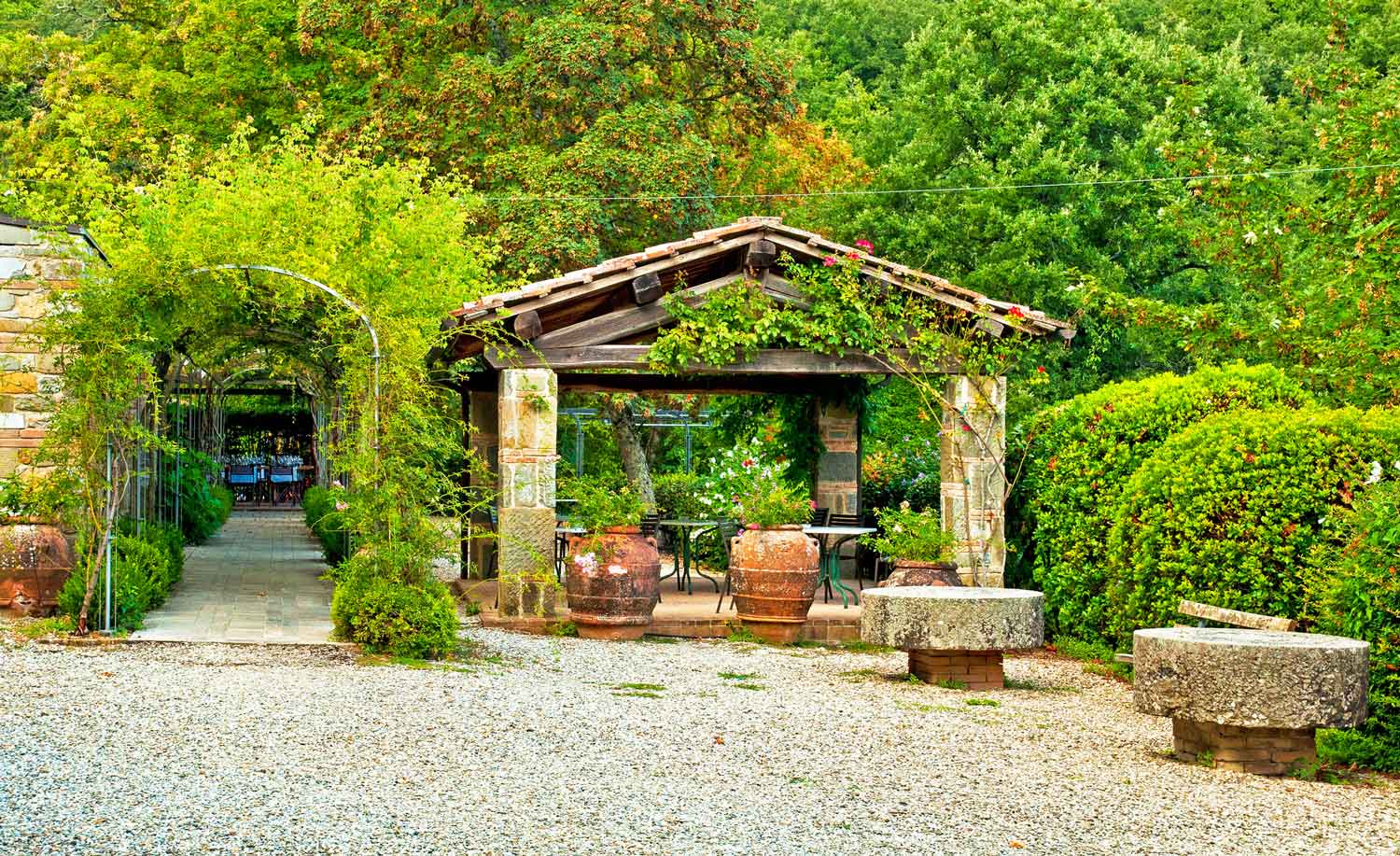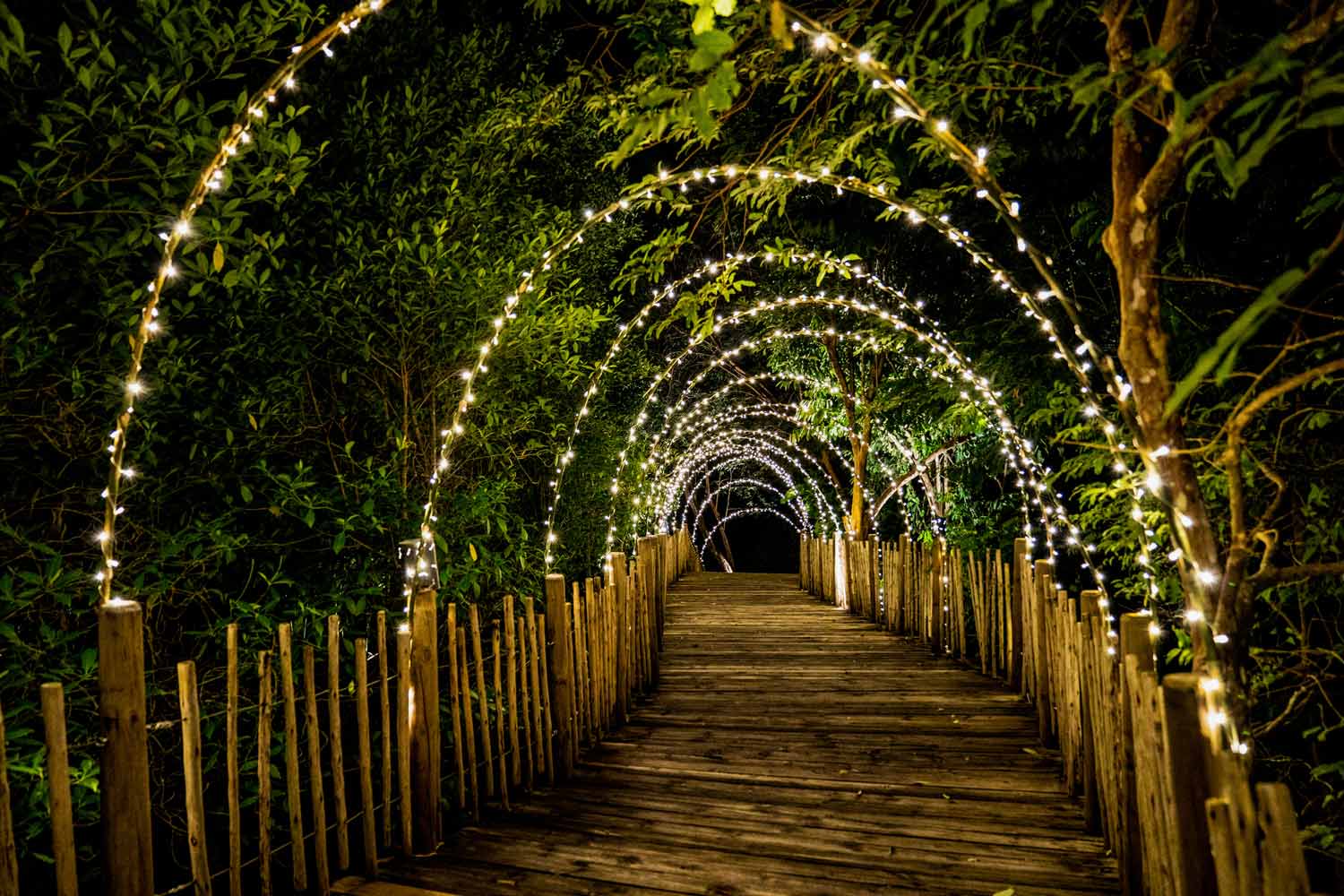Are you considering a new patio, walkway, or driveway installation? Choosing a suitable construction material for these outdoor services is crucial to ensure long-term value and compatibility with your lifestyle.
The two traditional materials for hardscaping include concrete and pavers. However, selecting the right one can be challenging as each material type has a unique set of characteristics.
In this comparison guide, the professional paver installers at Highland Grove Landscaping & Farm discuss the critical differences between pavers vs. concrete to help you make an informed decision.
Concrete vs. Pavers: Material Descriptions
Concrete outdoor flooring typically consists of a slab arrangement. The construction of this material is generally a mixture of sand, water, cement, aggregate, or stone. Pavers are outdoor flooring arrangements consisting of interlocking bricks or paving stones of flagstone, travertine, concrete, or other materials.
Durability: Which Material Lasts Longer?
Durability and longevity are likely your most critical considerations when planning a patio installation. Ideally, you want your walkway or patio to have a functional lifespan of at least several decades, eliminating the need for premature replacements and frequent, costly repairs.
Concrete has a life expectancy of up to 50 years. In stable soil conditions, a concrete slab can last even longer. This flooring material has a high weight-bearing capacity and can resist heavy vehicle traffic.
However, concrete is prone to cracking. Tree root growth, temperature fluctuations, and the contraction and expansion of sub-surface soil are some of the factors that can cause concrete to crack.
Driveway and patio pavers generally have a longer life expectancy than concrete, with some paving materials lasting up to a century. Pavers are less prone to cracking due to their interlocking design, and heavy traffic volumes have minimal effect on their structural integrity and appearance.
A paver hardscape expands and contracts with soil movements and temperature fluctuations, minimizing structural stressors causing cracks. The pavers are highly resilient and can withstand environmental changes without chipping or cracking.
Porosity and Water Drainage
Your water drainage requirements depend on your property’s typography and structure’s location relative to the patio or driveway. Ideally, you want to minimize moisture accumulation and absorption near your foundation.
Concrete has a higher porosity than pavers. Without a sufficient moisture barrier, concrete can absorb water, which reduces the patio or driveway’s compressive strength over time. As a result, heavy traffic can damage the top concrete layer, affecting its appearance and functionality.
Once concrete becomes saturated, it will form a puddle, providing an environment for microbial growth. Laying an even base is also essential to prevent water accumulation. With proper grading and a sealant application, these issues are avoidable.
Pavers are generally dense with low porosity and permeability. As a result, these surfaces direct rainwater to areas where it cannot cause damage. When installing pavers, paying attention to the surface slope is critical.
Affordability: Which Material is Cheaper?
The cost of pavers and concrete surfaces depends on various factors, including materials, surface size, and installation requirements. For example, natural stone pavers are generally more expensive than clay brick pavers. Similarly, stamped concrete might be more expensive than poured concrete as the former requires additional texturing.
As a rule, pavers are more expensive than concrete per square foot. Concrete slabs also have a more straightforward installation process than pavers, which reduces installation costs.
Factors that can increase the cost of a patio, walkway, or driveway installation include irrigation issues, intricate inlay patterns, and curvatures along the surfaces’ edges.
Ongoing Maintenance Requirements and Repairs
Both concrete and pavers have relatively low maintenance requirements. Pressure washing these surfaces once or twice a year is generally sufficient to remove grime-build-up. A sealant application once every three years can help to protect these surfaces against the elements, including moisture.
That said, pavers are more susceptible to weed growth than concrete slabs. Removing the weeds growing between pavers can be challenging and might require frequent herbicide applications.
On the other hand, concrete slabs are more challenging to repair than pavers.
For example, suppose a pipe running underneath a patio starts leaking. In this case, a contractor can remove the pavers, repair the leak, and reinstall the bricks. However, if the pipe is underneath a concrete slab, the contractor might need to break the slab open, and this damage can be challenging to repair cosmetically.
Suitable Landscaping Applications
Both concrete and pavers are suitable for a wide range of aesthetic and utility applications.
Most people don’t associate the term “concrete surface” with residential applications. However, polished or stamped concrete has a unique curb appeal that can significantly enhance a property’s overall appearance. For example, stamped concrete can have the authentic appearance of slate, tile, or flagstone paving.
Pavers are available in various materials, styles, colors, and patterns. You can also combine different tones and textures to achieve a unique look.
Paved patios generally have a longer life expectancy than concrete surfaces. Even though paved surfaces are more expensive, you can expect their long-term value to offset these costs in the near future.
Poolside Installation Considerations
When choosing a construction material for a poolside deck, you should consider all their characteristics. Accounting for the porosity and permeability of concrete and pavers is particularly important, as these materials will be in frequent contact with water.
A concrete poolside deck is an affordable alternative and viable option, especially with a sealant covering. At Highland Grove Landscaping & Farm, we often recommend pavers due to their slip resistance and curb appeal.
However, some natural stone pavers might be susceptible to discoloration. In some cases, manufacturer warranties don’t cover paver poolside decks.
Reach Out to Our Team at Highland Grove Landscaping & Farm
When deciding between concrete vs. paving, you must carefully consider your personal preferences, budget, and property conditions. At Highland Grove Landscaping & Farm, we can help you make an informed decision. Contact us today to schedule a free consultation and learn more about your options while planning a landscaping project.
